Ingredients in today’s skin care products do a lot of different things

Go to any supermarket or mom-and-pop shop and you might find yourself overwhelmed by the sheer amount of skin care products on the shelves. Whether you’re just starting out on a first-time skin care regimen or you’re a longtime user, knowing what specific ingredients do in your most popular products can be beneficial.
Cleveland Clinic is a non-profit academic medical center. Advertising on our site helps support our mission. We do not endorse non-Cleveland Clinic products or services. Policy
If you’re looking for something to help you with a specific skin condition, knowing what’s in your skin care products can be important information. Dermatologist Wilma Bergfeld, MD, walks us through some of the most popular skin care ingredients, what they do and how they work.
Over-the-counter skin care products containing alpha-hydroxy acids, or AHA, (glycolic, lactic, tartaric and citric acids) have become increasingly popular in recent years. Creams and lotions with alpha-hydroxy acids may help with fine lines and wrinkles, irregular pigmentation and age spots. It may also help shrink enlarged pores. Side effects of alpha-hydroxy acids include mild irritation and sun sensitivity.
“To avoid burning, you should apply sunscreen in the morning every day,” advises Dr. Bergfeld.
To help avoid skin irritation, start with a product with a maximum concentration of 10% to 15% AHA. To allow your skin to get used to it, you should only initially apply the skin care product every other day, gradually working up to daily application.
This AHA helps exfoliate your skin and boost collagen production (the protein that strengthens connective tissue). It not only helps clear your pores and smooth fine wrinkles, but it can also help hydrate your skin. Creams and lotions with this ingredient often help with improving eczema, while cleansers that use this ingredient can assist with blackheads.
This AHA is produced in muscle cells and red blood cells. Like glycolic acid, products with this ingredient such as foot peels can help with exfoliation while others can help with moisturizing your skin.
Salicylic acid removes dead skin and can improve the texture and color of sun-damaged skin. It penetrates oil-laden hair follicle openings and, as a result, also helps with acne. There are many skin care products available that contain salicylic acid. Some are available over-the-counter and others need a doctor’s prescription.
“In many cases, salicylic acid can be less irritating than skin care products containing alpha-hydroxy acids,” explains Dr. Bergfeld. “But they provide similar improvement in skin texture and color.”
Skin care products containing hydroquinone are often called bleaching creams or lightening agents. These skin care products are used to lighten hyperpigmentation, such as age spots and dark spots (melasma or chloasma) related to pregnancy or hormone therapy. Over-the-counter skin care products such as AMBI® Fade Cream contain hydroquinone.
“Your doctor can also prescribe a cream with a higher concentration of hydroquinone if your skin doesn’t respond to over-the-counter treatments,” says Dr. Bergfeld.
Hydroquinone is also sometimes combined with sunscreen because sun exposure causes skin hyperpigmentation. It’s best to test hydroquinone-containing products in a small area, as some people are allergic to it. If you’re allergic to hydroquinone, you may benefit from the use of products containing kojic acid instead.
Kojic acid is also a remedy for the treatment of pigment problems and age spots. Discovered in 1989, kojic acid works similarly to hydroquinone. Kojic acid is derived from a fungus, and studies have shown that it’s effective as a lightening agent, slowing production of melanin (brown pigment). With continued use, kojic acid may make your skin more susceptible to sunburn.
Look to retinol to improve acne and acne scarring, mottled pigmentation, fine lines and wrinkles, skin texture, skin tone and color, and your skin’s hydration levels.
Retinol is derived from vitamin A and is found in many over-the-counter “anti-aging” skin care products. Tretinoin, which is the active ingredient in prescription Retin-A® and Renova® creams, is a stronger version of retinol. If your skin is too sensitive to use Retin-A, over-the-counter retinol is an excellent alternative.
“Vitamin A has a molecular structure that’s tiny enough to get into the lower layers of your skin, where it finds and boosts collagen and elastin, which is a protein that strengthens your skin’s flexibility” explains Dr. Bergfeld.
This is the only form of vitamin C that you should look for in your skin care products.
“There are many skin care products on the market today that boast vitamin C derivatives like magnesium ascorbyl phosphate or ascorbyl palmitate as an ingredient,” says Dr. Bergfeld. “But L-ascorbic acid is the only useful form of vitamin C in skin care products.”
With age and sun exposure, collagen synthesis in your skin decreases, leading to wrinkles. Vitamin C is the only antioxidant proven to stimulate the synthesis of collagen, minimizing fine lines, scars and wrinkles. It may also improve the appearance of sun-damaged skin. Initial use of vitamin C-containing creams can cause stinging or redness, but these side effects generally go away with continued use.
Skin care products containing this substance are often used with vitamin C products to assist in effective penetration. Hyaluronic acid (also known as a glycosaminoglycan) is touted for its ability to “reverse” or stop aging. In news reports, you might have heard of hyaluronic acid as the “key to the fountain of youth.” This is because the substance occurs naturally (and quite abundantly) in humans and animals, and is found in young skin, other tissues and joint fluid.
“Hyaluronic acid is a component of your body’s connective tissues, and it’s known to cushion and lubricate these tissues,” says Dr. Bergfeld. “As you age, however, forces of nature destroy hyaluronic acid. Poor diet and smoking can also affect your body’s level of hyaluronic acid over time.”
Niacinamide is a form of vitamin B3 that helps build keratin and keep your skin firm and healthy. It can help retain moisture and stop skin flushing. If you have rosacea, face masks with this ingredient can help reduce redness and swelling.
This silicone-based ingredient is the second-most common ingredient in moisturizers. If you’re dealing with dry skin, moisturizers with this ingredient can be beneficial, especially in the winter. This non-toxic ingredient can help with scar tissue and makes your skin feel incredibly soft.
It can also help protect your hair against breakage and create a slick, smooth feeling in your follicles. This is why you’ll find this ingredient in hair products that help reduce frizz and split ends. But it’s important to note that it’s heavy and builds up quickly, sometimes preventing water from getting into your roots. If you use a product with dimethicone, you’ll want to use a clarifying shampoo once a week to help clear up any buildup.
Copper peptide is often referred to as the most effective skin regeneration product, even though it’s only been on the market since 1997. This ingredient promotes collagen and elastin production, acts as an antioxidant and promotes production of glycosaminoglycans like hyaluronic acid. It also increases the benefits of your body’s natural tissue-building processes by firming, smoothing and softening skin — and it does this in less time than most other anti-aging skin care products.
This natural moisturizing ingredient helps repair dry or cracked skin. You’ll find this in a number of lip balms or face creams. This is a great ingredient for oily skin that can help reduce blackheads, pimples and acne. Because of its ability to lock in moisture, you can benefit from using products with glycerin at the end of the day to keep your skin moisturized overnight.
Learn more about our editorial process.
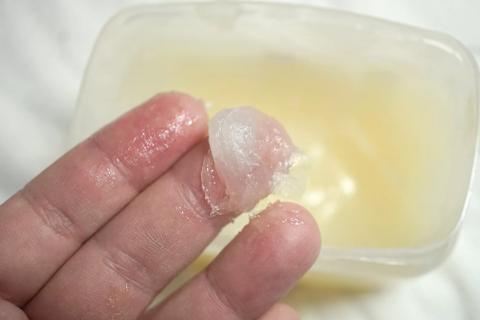
Go ahead and get goopy to help boost hydration and repair damaged skin

A well-balanced diet with anti-inflammatory foods can help reduce flare-ups and severity of psoriasis symptoms

Stress, infections, skin injuries and environmental factors can trigger an onset of psoriasis symptoms

Stick to your treatment plan, but keep your provider updated on any new symptoms or triggers
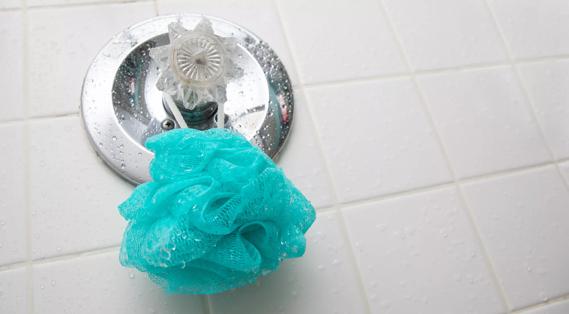
This puffy shower accessory can become lodged with skin cells (and other gross things), so make sure you dry it daily and clean it once a week
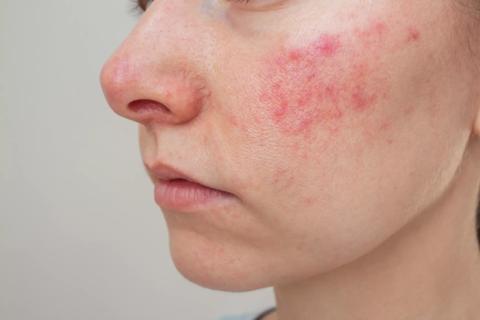
You can turn down the redness and soothe the irritation with natural remedies like green tea, raw honey and aloe vera
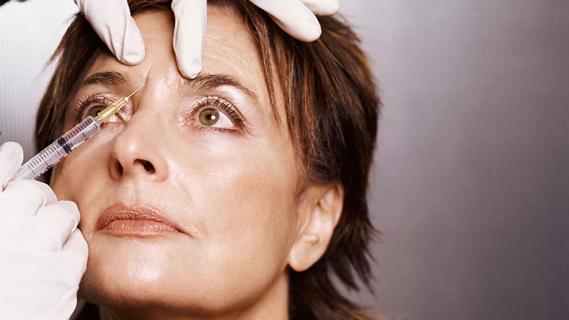
With repeat injections over time, you may be able to slow the development of new wrinkles
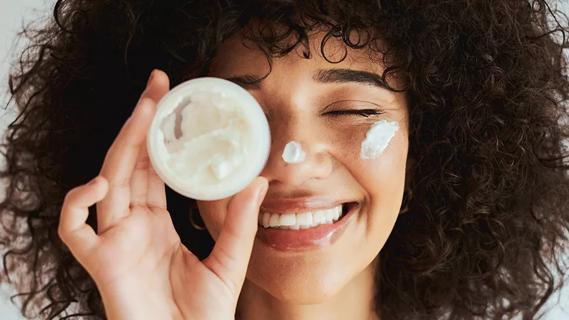
Pantothenol is a powerful moisturizer and can help repair damaged skin and hair

Your metabolism may torch 1,300 to 2,000 calories daily with no activity

A gentle touch in all the right places may help drain your sinuses